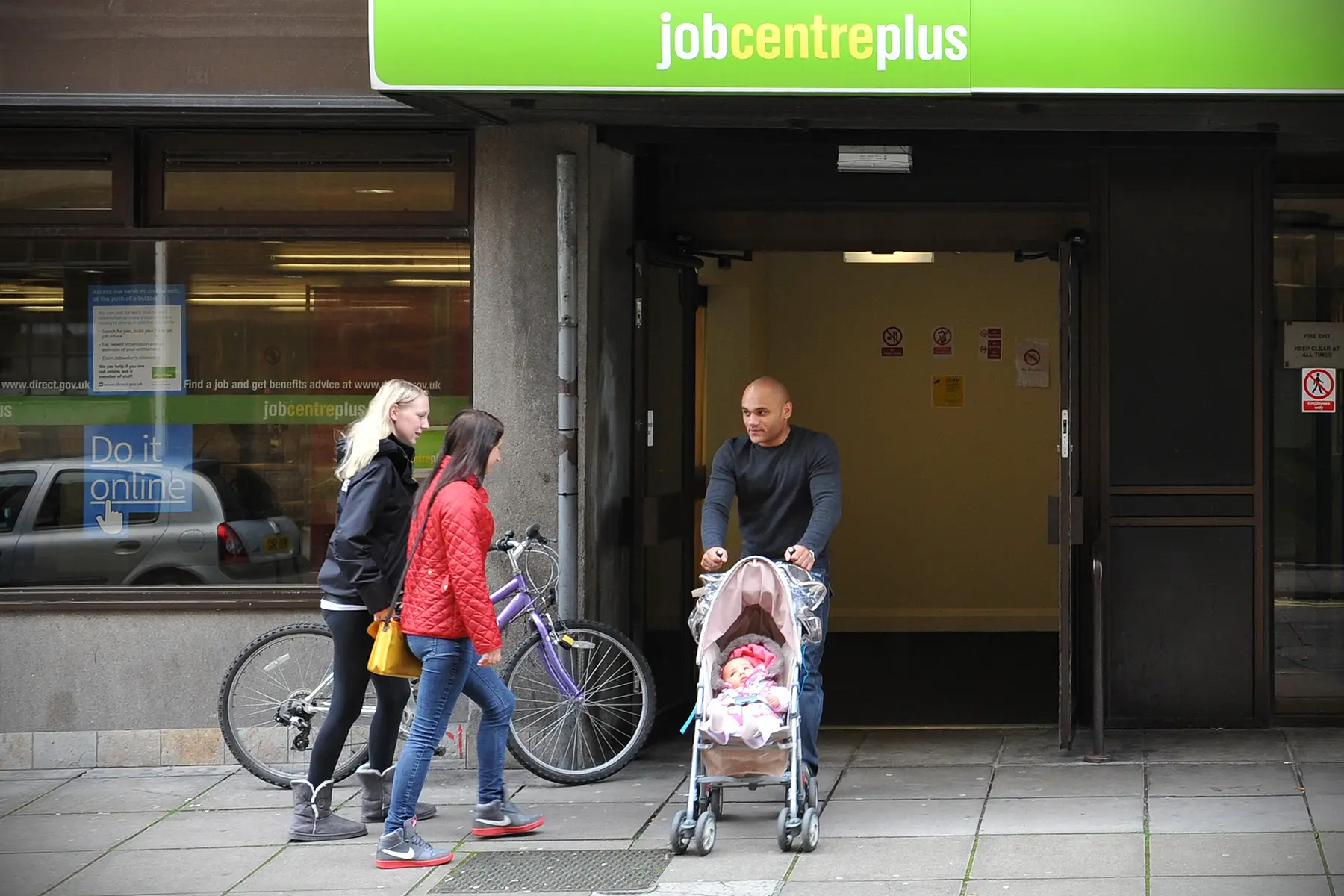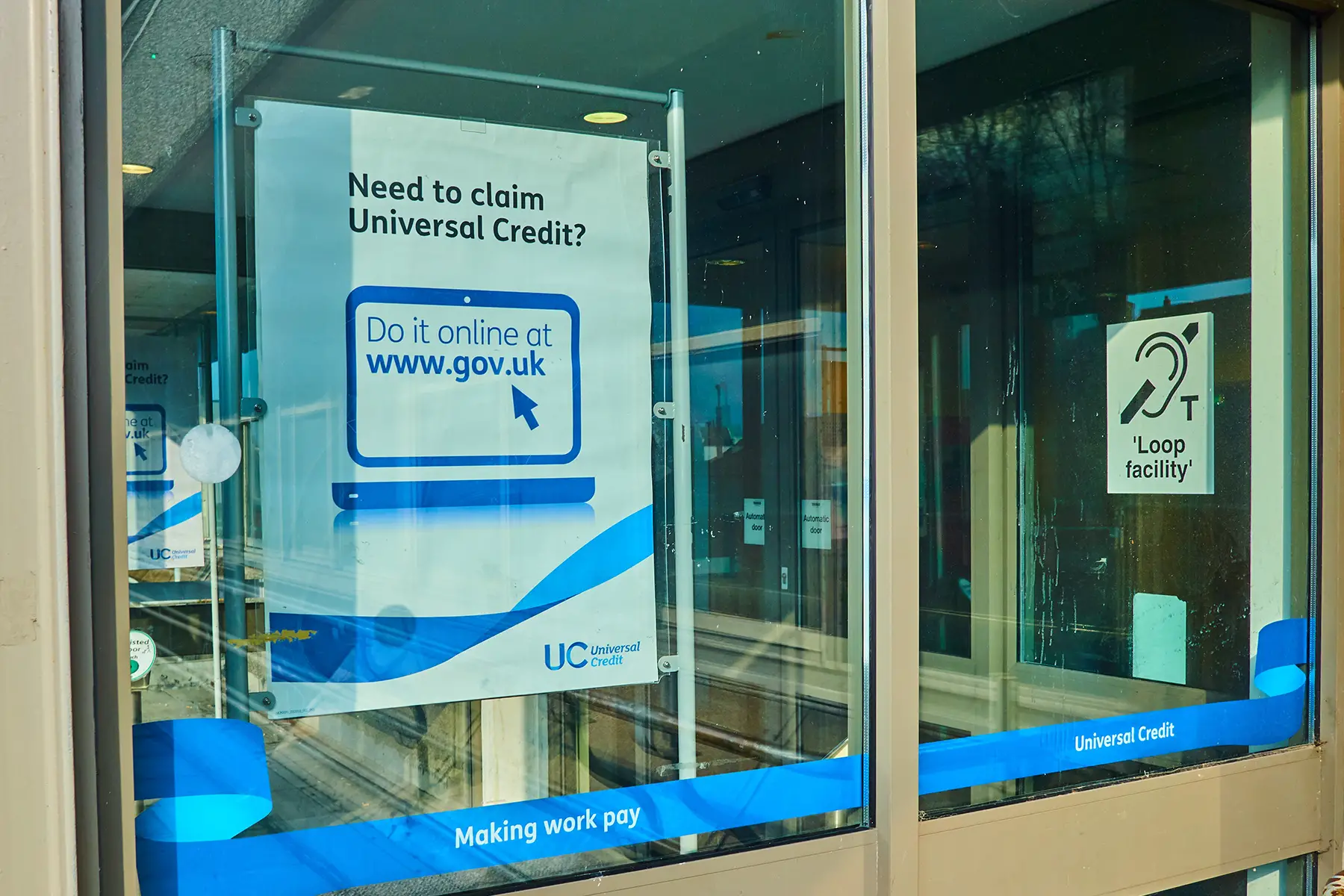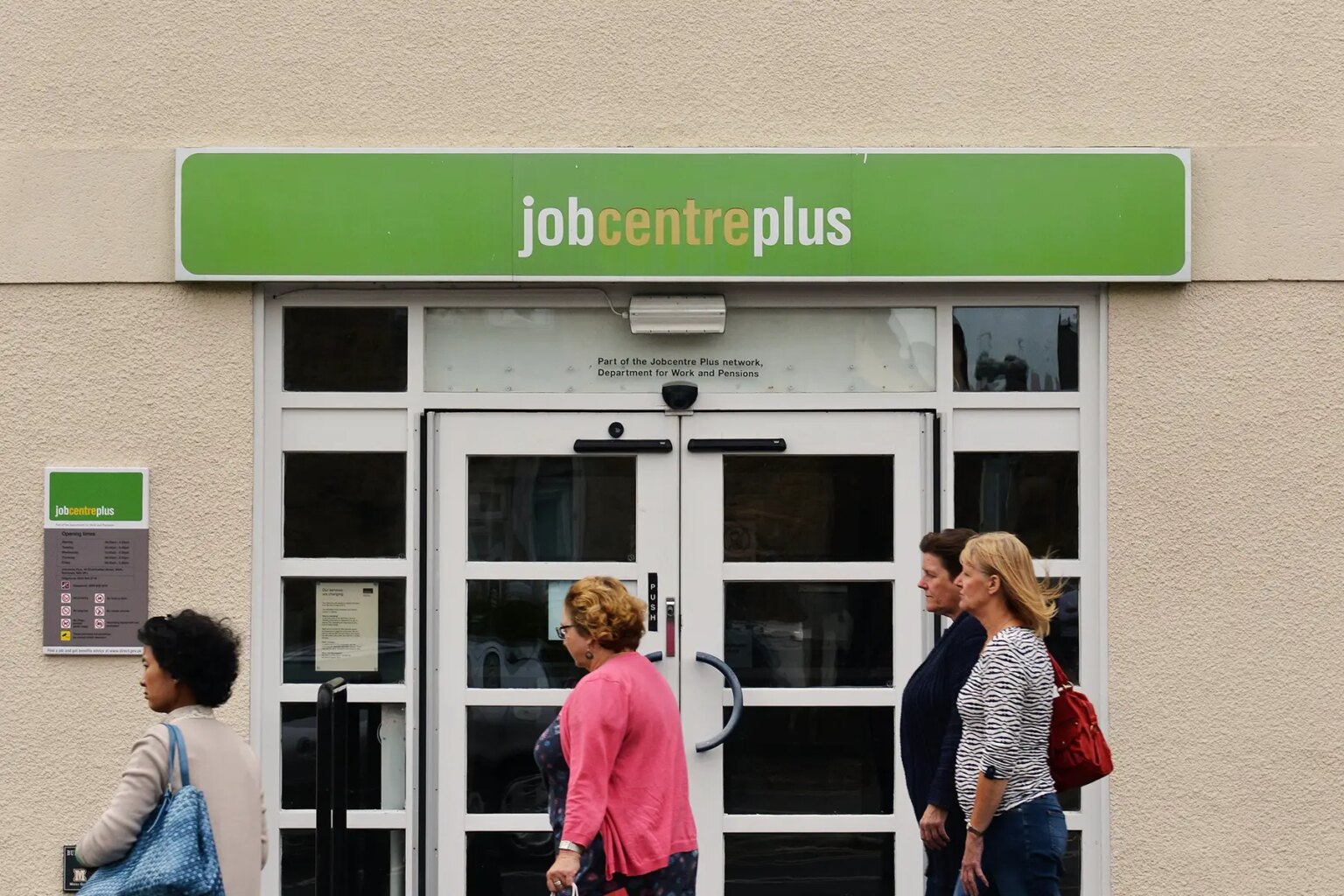If you are an employee in the UK, you might notice a National Insurance payment coming out of your paycheck. This contribution, which self-employed people must also make, covers you for state-funded social security. This entitles you to a UK pension plus other benefits if you make enough contributions. Expats can register for a National Insurance number to ensure they are covered in periods of need.
Read on to find out about:
- National Insurance in the UK: the social security system
- Who can register for National Insurance in the UK?
- National Insurance benefits in the UK
- Other social security benefits in the UK
- Health insurance in the UK
- National insurance for self-employed and freelancers in the UK
- Social security in the UK for part-time workers, low earners, and students
- Problems with receiving social security benefits in the UK
- Private social security options in the UK
- Useful resources
National Insurance in the UK: the social security system
UK social security is linked to a system called National Insurance (NI). This is a contributory scheme where employees and the self-employed make monthly contributions towards particular social security benefits. These benefits can help pay for the UK’s cost of living, which has recently been increasing, affecting many people living in the country.
Your NI contributions and entitlements are linked to a NI number, which is the British social security ID number. All UK residents should receive a NI number around the time of their 16th birthday. Foreign residents need to apply for a NI number to work and pay social security contributions in the UK. The NI number comprises two letters, followed by six numbers and one more letter.
Contributory benefits linked to National Insurance in the UK are:
- UK State Pension
- Unemployment benefit (contribution-based Jobseeker’s Allowance – JSA)
- Disability benefit (contribution-based Employment and Support Allowance – ESA)
- Maternity Allowance
- Bereavement Support Payment
In addition to this, having a NI number gives you access to additional benefits, including:
How to apply for National Insurance in the UK
If you are a UK citizen, you should receive your NI number in the mail around your 16th birthday. This is usually in the form of a red and blue card that contains your name and NI number. It is about the size of a credit card. You can also find your number on your payslips and any official correspondence about your tax, state pension, or benefits.

Apply for your NI number in the UK online – you’ll need a valid ID, such as your passport and a UK residence permit. The NI number allows you to work in the UK, although you can start work before you get your number as long as you can prove that you have the right to work.
National Insurance contributions in the UK
The following have to make NI contributions in the UK:
- Employees earning over £242 a week
- Self-employed with profits of over £6,725 a year
Employees make their contributions directly through payroll, the same as tax payments, whereas the self-employed need to pay theirs along with income tax payments as part of their annual tax return.
There are four classes of National Insurance in the UK:
- Class 1 – employees pay 10% (8% from April 2024) on earnings up to £967 a week, then 2% on income above this.
- Class 2 – self-employed workers can make a voluntary contribution of £3.45 per week
- Voluntary Class 3 contributions – you can make these additional contributions, for example, if you have any payment gaps on your record and want to top up your entitlements.
- Class 4 – self-employed workers pay 9% on profits between £12,570 and £50,270, then 2% on earnings above this.
As NI is a contributory system linked to earnings, it does disadvantage low earners and those unable to make contributions, such as those on zero-hours contracts, as it means they are entitled to lower pensions and benefits.
You usually stop paying NI when you reach UK pension age.
Who can register for National Insurance in the UK?
You can apply for a NI number if you live in the UK and have the right to work. This includes those in the UK on short-stay visas with temporary residence permits. However, you should only apply if you intend to find work.
Although the UK has now left the EU, citizens from EU/EFTA countries living in the UK who have applied for settlement can benefit from the terms of the Withdrawal Agreement. This means that any contributions they made in EU countries while the UK was still a member state count towards their UK social security.
In addition to this, the UK has several reciprocal social security agreements with non-EU countries, which allow contributions made abroad to count towards benefit entitlements.
However, all foreign nationals must apply for a UK National Insurance number if they intend to work in the UK, even if they have entitlements thanks to their contributions in their home country.
National Insurance benefits in the UK
Your NI contributions pay towards several benefits. Some social security benefits in the UK consist of two parts: basic and contribution-based. In the latter case, how much you get depends on your NI contributions.
Unemployment benefit (contribution-based Jobseeker’s Allowance – JSA)
Now called ‘new style’ Jobseeker’s Allowance (JSA), this is a weekly benefit you can claim if you become unemployed and have made Class 1 NI contributions in the last 2-3 years. You need to be aged 18-66 and available for work.
To claim, you need your NI number and details of your employment covering the previous six months. You can check your eligibility and make a claim online.
Once you’ve registered a claim, the Department for Work and Pensions (DWP) will contact you for a phone interview within 10 days. They will verify your details during this call and set out your ‘Claimant Commitment,’ explaining your steps for looking for work while claiming JSA. Typically, this involves spending a set number of hours each week looking for and applying to jobs, plus attending an interview at a Jobcentre Plus every one or two weeks.

If your claim is successful, you will receive up to £84.80 a week (or £67.20 if aged under 25) while unemployed, as long as you stick to your ‘Claimant Commitment’ and don’t work more than 16 hours per week. In addition, you can normally backdate a claim for up to three months if you have a good reason for not claiming earlier.
This system applies to England, Scotland, and Wales. There is a different JSA process in Northern Ireland.
UK state pension
This is the old-age pension you receive if you’ve paid National Insurance in the UK. Currently, the UK state pension age is 66, but it is due to go up to 67 by 2028, with further subsequent rises planned. Your UK state pension depends on your NI contributions. Typically, you need to have made at least 10 years of contributions throughout your working life to be eligible.
If you’ve made at least 35 years of NI contributions, you can get the full UK state pension, currently £203.85 per week.
Disability benefit (contribution-based Employment and Support Allowance – ESA)
Employment and Support Allowance (ESA) is the disability benefit you can claim if you’ve made NI contributions (usually over the past 2-3 years). You can claim if you’re employed, self-employed, or unemployed. However, you must have a disability or health condition that affects your ability to work.
To be eligible for ESA, you cannot work more than 16 hours per week or earn more than £167 a week. Additionally, you cannot currently be receiving either JSA or sick pay. To make a claim, you’ll need:
- NI number
- Details of your GP
- Income details if you are currently working
You can make an ESA claim online. The claims process can take up to 13 weeks, during which time you’ll get the same weekly amount as JSA. If your claim is successful, you’ll be placed into one of two groups:
- Work-related activity group – for people who are either working or can get back into work. The system for this is similar to JSA. You need to make a ‘Claimant Commitment’ and will receive up to £84.80 a week (or £67.20 if under 25). However, you can claim for up to a year.
- Support group – for people deemed unable to work for the foreseeable future. You can receive up to £129.50 a week indefinitely.
You may have to undergo a Work Capability Assessment to determine your eligibility for ESA and which group you join.
Maternity allowance
You can get this maternity benefit payment if you are self-employed, recently made unemployed, or are working but cannot get Statutory Maternity Pay. In order to receive it, you must have been working for at least 26 weeks, earning at least £30 a week for at least half of this period.
You don’t need to have paid National Insurance in the UK to claim maternity allowance. However, any payments you have made will increase your entitlement. You can claim £172.48 a week, or 90% of your average weekly earnings (whichever is lower). You can claim for up to 39 weeks, starting from 11 weeks before the due date. Maternity allowance payments affect how much you can get for JSA or ESA if you also claim these benefits. Check this online calculator to see how much you could receive.
To make a claim, you will need to complete a claim form. You will also need to provide proof of income, details of the baby’s due date, and a completed SMP1 form if you’ve been refused statutory maternity pay.
Bereavement support payment
You can claim a bereavement support payment if your spouse/registered partner died within the last 21 months and has made NI payments for at least 25 weeks in any year. In addition, you must be below the UK state pension age.
The payment amount is linked to your circumstances and when you make the claim. To get the full payment, you need to claim within three months of the death. The standard amount is a lump sum of £2,500 and up to £100 a month for 18 months. However, if you have dependent children or were pregnant at the time of your partner’s death, this increases to a £3,500 lump sum and 18 monthly payments up to £350.
You can apply for the bereavement support payment online. To do this, you will need the NI numbers for both yourself and your deceased partner, plus details on the date of death.
Other social security benefits in the UK
Universal credit
Universal credit is a UK social security benefit that has been phased in across the country since 2013. It is currently in operation across many parts of the UK, although the government estimates that it won’t be fully rolled out until late 2024. The benefit replaces several current UK benefits, which are:
- Jobseeker’s Allowance (JSA)
- Employment and Support Allowance (ESA)
- Child Tax Credit
- Housing Benefit
- Income Support
- Working Tax Credits
The benefit covers basic living costs – including some childcare costs – for low earners, unemployed people, and those unable to work. You can claim universal credit even if you haven’t paid National Insurance in the UK. However, your entitlements for certain elements (for example, JSA and ESA) will be lower.
You can claim universal credit if you are a UK resident aged 18-66 and have less than £16,000 in savings. Because the benefit consists of several elements, there are no defined thresholds regarding how much you currently earn. You can use a benefits calculator to help determine what you might be entitled to.

You can apply online if you have a bank account and email address. To do this, you’ll need ID and information about your current earnings, accommodation payments, any disability or health condition, childcare costs, and savings.
The amount you receive depends on your personal circumstances. You get a monthly payment, with the first one usually five weeks after your application. If you experience financial difficulties before receiving the first payment, you can apply for an advance. You may also be able to apply for additional financial support.
Child benefit
All UK residents are entitled to child benefit if they have any children. This is a fixed amount paid until the child reaches the age of 16 (or 20 if they stay in full-time education or training).
The current UK child benefit rate is £24 per week for your first child and £15.90 for subsequent children. There is no limit on the number of children you can claim for. However, you may have to pay some child benefit back in tax if you earn over £50,000 a year (£60,000 from April 2024).
You should automatically receive child benefit if you register your child’s birth in the UK. Otherwise, you can complete this form. Only one person can claim child benefit per child.
Maternity and paternity pay
You can claim statutory maternity or paternity pay as long as you are a contracted employee earning at least £123 a week and have been in employment for at least 26 weeks prior to the notice period.
All you need to do is inform your employer at least 15 weeks before the due date. They should then make the necessary arrangements.
Both maternity and paternity pay rates are the same as maternity allowance at the statutory level, which is £172.48 a week, or 90% of average weekly earnings (whichever is lower). The pay lasts for the duration of parental leave – up to 39 weeks for the mother and up to two weeks for the father. However, your employer may have a parental pay scheme that pays more than the statutory amount.
Disability benefits
In addition to ESA detailed above, disability benefits in the UK include:
- Personal Independence Payment (PIP) – a benefit to help with extra living costs if you have a disability or mobility issues. You can get up to £101.75 a week for daily living and up to £71 a week for mobility.
- Disability Living Allowance (DLA) for children – up to £156.90 a week to help with the extra costs of looking after a disabled child aged under 16.
- Attendance Allowance – up to £101.75 a week to help cover the costs of having someone to look after you if you have a disability.
- Carer’s Allowance – £76.75 a week if you care for someone for at least 35 hours a week and they receive other disability benefits.

Sick pay
You qualify for statutory sick pay if you’re a contracted employee in the UK earning at least £120 a week and have been off work ill for at least four days in a row, including non-working days.
The payment is £109.40 a week for up to 28 weeks. You may get more if your employer has a separate occupational sick pay scheme. To claim, you need to inform your employer of your illness. You will need to provide proof of illness, such as a doctor’s note if you’re ill for more than seven days in a row.
Health insurance in the UK
Unlike in many other European countries, the public healthcare system in the UK is not funded by health insurance. Instead, the National Health Service (NHS) is paid for through general taxation. All residents in the UK can access public healthcare services by registering with a local GP.
You can take out additional private health insurance in the UK if you want access to private medical professionals or services not on the NHS. These might include alternative therapies and dental care treatment. Using private services also usually means shorter waiting times for treatment.
National insurance for self-employed and freelancers in the UK
If you become self-employed in the UK or work as a freelancer, you will have to make compulsory NI contributions if you make profits of over £6,725 a year. However, you will be responsible for making your own payments.
Self-employed workers pay two types of National Insurance in the UK:
- Voluntary class 2 contributions at the rate of £3.45 a week for 2023/24.
- Class 4 contributions at 9% on profits between £12,570 and £50,270, then 2% on earnings above this (2022/23 rate).
You pay this at the same time as your income tax in the UK when you file your annual tax return. Self-employed UK workers can also make voluntary Class 3 NI contributions to top up their entitlements.
You will be entitled to the same social security benefits as employees if you are self-employed or a freelancer in the UK. If your business experiences problems, for example, if it has been affected by the COVID-19 pandemic, the government has a helpline for support and options.
Social security in the UK for part-time workers, low earners, and students
If you earn below £242 a week, you will be exempt from National Insurance payments in the UK. This may be the case if, for example, you work part-time or are a student in the UK. It will affect your benefit entitlements. For instance, you will receive a lower rate state pension and contribution-based benefits.
You will still be able to claim some social security benefits and access financial support in the UK. Universal credit is now the main benefit payment for low earners in the UK. You may also be able to access other forms of financial support, including:
- Advance payments or alternative payment arrangements for your benefit entitlements
- Help with utility bills and housing costs
- Help with childcare costs
Problems with receiving social security benefits in the UK
If you have a problem with your social security benefits in the UK, you can contact your local Jobcentre Plus office. For Universal credit queries, you can call the helpline. If your problem is not resolved, you can lodge an official complaint with the DWP.
Other organizations that can help you with benefits problems in the UK are:
- Citizens Advice – provides guidance on challenging benefits decisions and how to deal with NI problems.
- MoneyHelper – this website has information on dealing with problems relating to universal credit, what to do if your benefits are cut, and where else you can get benefits help and advice.
Private social security options in the UK
You can use private social security insurance schemes in the UK to top up your statutory benefits or as an alternative if you cannot access state-funded schemes. These include:
- Voluntary private pension
- Private health insurance
- Other personal insurance policies such as unemployment insurance
Useful resources
- gov.uk – UK central government online portal with information on social security, benefits, and National Insurance
- Citizens Advice – UK charity with information and advice on UK benefits
- MoneyHelper – advice on UK benefits and pensions
- Department for Work and Pensions (DWP) – government department with details on benefits, pensions, and finding work
- MoneySavingExpert – website run by Martin Lewis, who provides tips for saving money and finding financial support in the UK
- Disability Rights UK – organization with advice for disabled people, including factsheets on rights, benefits, and budgeting








